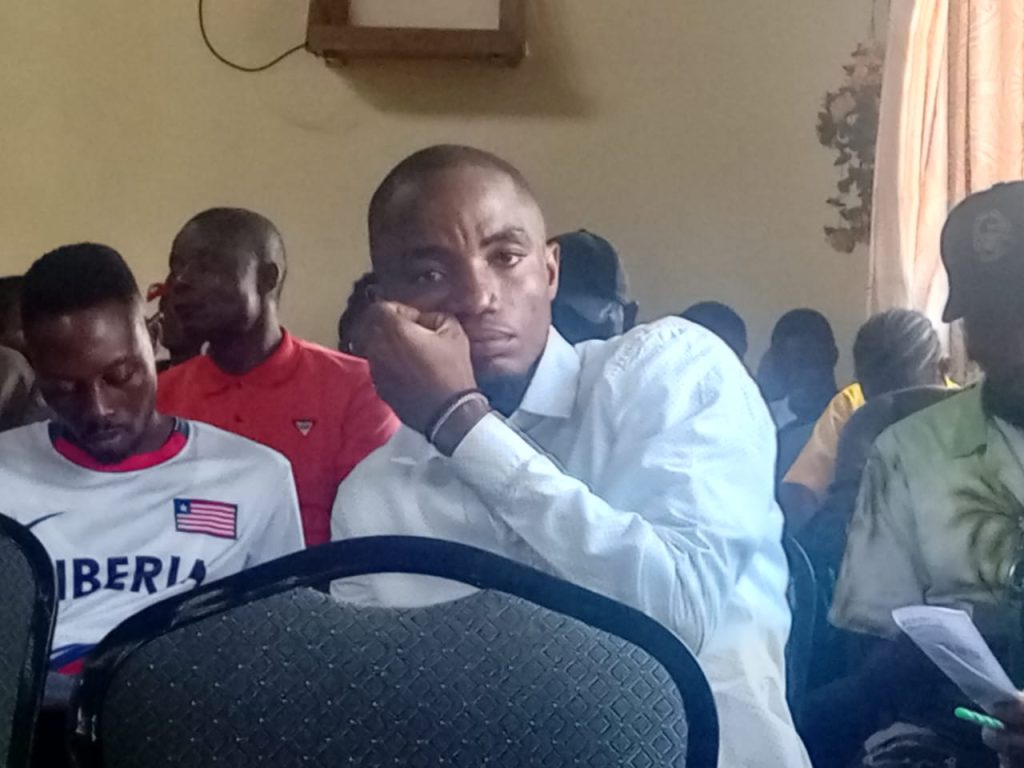Amb. Anthony Nimely, a rehabilitated drug user, has leveled serious accusations against Liberia’s Drug Enforcement Agency (LDEA), alleging that the agency’s corruption is exacerbating, rather than mitigating, the country’s drug problem. Speaking at an anti-drug awareness event in Monrovia, Nimely criticized the LDEA’s current strategies, asserting that they are insufficient to address the root causes of drug abuse and, in fact, contribute to the cycle of addiction and trafficking. He drew upon his personal experiences with addiction, portraying a disturbing picture of complicity between LDEA officers and drug dealers, perpetuating the very problem they are tasked with combating. This alleged corruption, coupled with Liberia’s high unemployment rate, creates a fertile ground for the drug trade to flourish.
Nimely’s central accusation revolves around a system of bribery within the LDEA. He claims that drug dealers regularly pay off LDEA commanders, ensuring their protection and advance warning of impending raids. Those who fail to pay are targeted, while compliant dealers are tipped off, often resulting in drug users, rather than traffickers, bearing the brunt of enforcement actions. This alleged practice, Nimely argues, fuels a cycle of violence and injustice, with the public often unaware of the underlying corruption and therefore supportive of the LDEA’s heavy-handed tactics. This system not only protects the drug trade but also criminalizes and victimizes those struggling with addiction, further hindering their path to recovery.
The economic context of Liberia exacerbates the issue. High unemployment rates, Nimely argues, drive many young people into the drug trade as a means of survival. He identifies Nigerians and Fulani traders as the primary importers of drugs into Liberia, selling at low prices to local dealers who then distribute within their communities. This low entry cost into the drug market makes it an appealing option for those struggling to find legitimate employment, further entrenching the cycle of poverty and addiction. The small profit margins for street-level dealers, Nimely explained, highlight the desperation driving their involvement in the trade.
Further compounding the problem, Nimely alleges that many LDEA agents are volunteers, poorly compensated and susceptible to corruption. He claims that some agents resell confiscated drugs back into the community, undermining the agency’s efforts and profiting from the very substances they are supposed to eradicate. This alleged internal corruption within the LDEA, coupled with the external bribery system, creates a virtually impenetrable network that sustains the drug trade and hinders any meaningful progress against it. Nimely’s assertion that 50% of LDEA agents are volunteers raises serious questions about the agency’s capacity and commitment to its mandate.
Adding weight to his allegations of corruption and ineffectiveness, Nimely cited a specific raid in Margibi County where a suspect was apprehended with a significant quantity of drugs and cash. Despite repeated inquiries, Nimely claims the LDEA has failed to provide any information about the outcome of the case, suggesting a lack of transparency and accountability within the agency. This alleged lack of follow-through underscores Nimely’s broader point about the LDEA’s systemic issues. The failure to provide information about the Margibi case serves as a microcosm of the larger problem of a seemingly unaccountable and potentially compromised agency.
Nimely’s testimony calls for a comprehensive reevaluation of Liberia’s anti-drug strategy. He urges both the government and the LDEA to adopt a more honest and transparent approach, emphasizing the need for genuine commitment to addressing the root causes of drug abuse. He contends that the government’s full involvement and the LDEA’s sincerity are crucial to any meaningful change. Without addressing the underlying issues of corruption, poverty, and unemployment, Nimely warns, the drug epidemic in Liberia will continue to worsen, with the LDEA potentially becoming a greater part of the problem than the solution. His call for transparency and accountability is a plea to break the cycle of corruption and impunity that appears to be fueling the drug trade and hindering the fight against addiction in Liberia.


